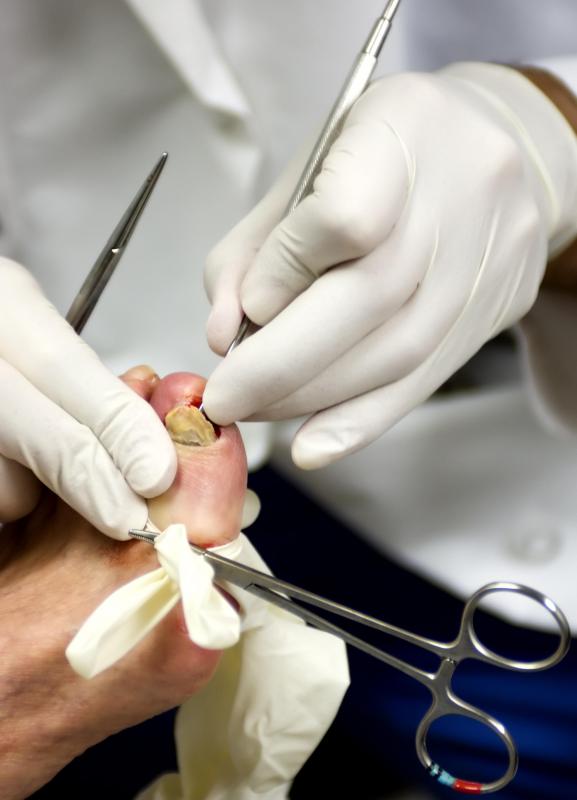At WiseGEEK, we're committed to delivering accurate, trustworthy information. Our expert-authored content is rigorously fact-checked and sourced from credible authorities. Discover how we uphold the highest standards in providing you with reliable knowledge.
What is an Antifungal Cream?
An antifungal cream is a topical medication, though some are inserted vaginally, typically used to treat fungal infections. Such infections include athlete’s foot, vaginal yeast infections, jock itch and occasionally fungal infections of the finger and toenails. These creams have active ingredients that help to reduce presence of fungi to normal levels.
You will find antifungal cream in several varieties that are available over the counter. They may have different active ingredients and be sold under many different brand names. Common active ingredients include miconazole, econazole, clotrimazole, and tioconazole. You may also note that an antifungal cream contains a second active ingredient to reduce itching. This is usually hydrocortisone, which may help relieve discomfort caused by fungal infections before the medication can work completely.

You’ll need to follow directions for the specific antifungal cream you use. Many have different strengths and will have various recommendations for how long you should use the cream. Unless your condition is not improving within a few days of use, you should continue to use the antifungal cream for the length of time recommended. When you note a condition is not getting better, you may need a stronger strength of the active ingredient or you might need to try a different antifungal ingredient. Contact your doctor to ask for advice and perhaps to schedule a visit if one cream doesn’t seem to be helping.

It’s also important to get a diagnosis if you think you have a fungal infection but aren’t sure. For instance if you’ve never had a yeast infection and you develop vaginal itching, this may or may not be a fungal infection. Instead of using over the counter antifungal cream, plan to see your doctor first for an appropriate diagnosis. People who have recurrent fungal infections like bouts of jock itch may already know they need to treat it, in which case it’s usually safe and appropriate to use an over the counter antifungal cream.

Sometimes fungal infections can be persistent and don’t improve with use of an over the counter fungal cream. In this case, if the infection is not clearing, you may require stronger medication available by prescription. There are some prescribed anti-fungal creams, though some doctors may prefer you to take an oral medication for certain types of infections.

Since fungal infections can be transferred to other areas of the body, and to other people, you should use care when you apply antifungal cream on yourself or other people. After applying a thin cover of the cream, wash your hands thoroughly to avoid transference of the infection. Do not allow unwashed hands to touch the tube of medicine. Instead, dole out the amount of cream you will need on a tissue so you don’t contaminate the medication. It’s probably a good idea not to share antifungal creams, and if you use one frequently, check the date to make sure the medication has not expired.
AS FEATURED ON:
AS FEATURED ON:
















Discussion Comments
I have a recurring infection around my anus. It's hell. It will come on gradually over about a week, and at it's worst it makes staying clean a horrible experience. Then, after a few weeks, it clears up and I'm fine for a month or two--lather, rinse, repeat. I had a case of jock itch that had spread to that area several years ago. Based on that experience, I can tell I'm dealing with the same thing this time around. However, it doesn't respond to Lotrimin Ultra the way it did the first time. I'm so horribly embarrassed to be examined by a physician, and I've been suffering with this for a couple years now.
It may take few years for an epidermal fungal infection to subside.
do fungal infections sometimes disappear without treatment?
To get rid of the fungus is so difficult, especially toe fungus.
Post your comments